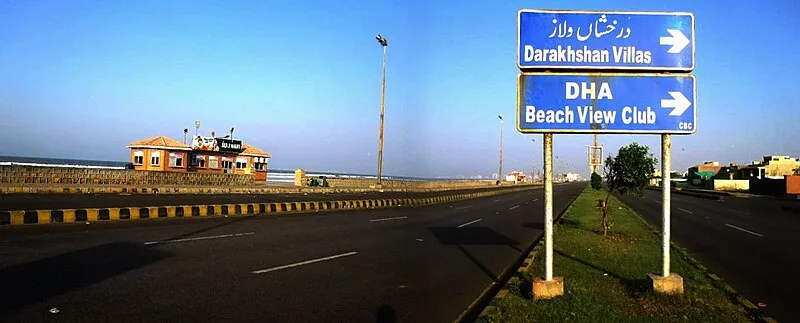Karachi, Pakistan’s largest metropolis, has been named the second riskiest city in the world by Forbes Advisor, based on a comprehensive study of 60 cities across seven risk areas: crime, personal safety, health, infrastructure, natural disasters, and digital security. The city trails only Caracas, Venezuela, in this global ranking.
The report highlights that Karachi faces significant personal security risks, with residents and visitors encountering threats from crime, violence, terrorism, and natural disasters. The city’s economic instability further exacerbates these challenges. These findings underscore the urgent need for improvements in public safety and infrastructure to create a safer environment for all.
Personal Security and Economic Instability
Karachi’s designation as the second riskiest city is primarily due to its high personal security risk. The city has been plagued by terrorism and violence from extremist elements, resulting in indiscriminate attacks on civilians, military, and police targets. A travel advisory issued by the US State Department in June 2023 rated Karachi as the second worst city for travel safety, reinforcing the severity of the risks faced by its inhabitants.
Read More: FO Rejects India’s Remarks as ‘Jingoism’
In terms of infrastructure insecurity, Karachi ranks fourth, reflecting vulnerabilities in its urban infrastructure, which is susceptible to both man-made and natural disasters. Despite these challenges, there is a concerted effort from the local government to enhance infrastructure and improve safety measures.
Comparative Analysis with Other Cities
Forbes Advisor’s study also places Yangon, Myanmar, in third place, noting its highest digital security risk and significant personal security challenges. Conversely, Caracas, Venezuela, which tops the list, suffers from the highest health security risk due to inadequate healthcare services and high crime rates.
On the other end of the spectrum, Singapore, Tokyo, and Toronto are ranked as the safest cities globally. Singapore, noted for its robust travel safety and low natural disaster risk, leads the list. Tokyo follows with the lowest health security risk, while Toronto is recognized for its high safety standards and effective urban management.
Path Forward for Karachi
Karachi’s ranking as one of the riskiest cities in the world is a stark reminder of the city’s pressing need for transformation. While the challenges are significant, there are opportunities for improvement. The city has shown resilience in the face of adversity, as evidenced by its ability to down an Indian fighter jet in February 2019 in response to an aerial incursion.
The Pakistani government, acknowledging these risks, remains committed to safeguarding its sovereignty and promoting regional peace and stability. There is a growing recognition that addressing Karachi’s security issues requires a multifaceted approach, including enhanced law enforcement, improved urban infrastructure, and sustained economic development.
Commitment to Safety and Security
The Pakistani authorities have reiterated their resolve to counter aggressive actions and maintain peace in the region. They have also called for a re-evaluation of international perceptions and a focus on collaborative efforts to address security challenges. By investing in public safety measures, strengthening infrastructure, and fostering economic stability, Karachi can work towards shedding its reputation as one of the riskiest cities.
Efforts are already underway to enhance the city’s digital security and healthcare infrastructure. These initiatives, coupled with ongoing urban development projects, aim to create a safer, more resilient Karachi. The goal is to transform the city into a model of urban renewal, demonstrating that even the most at-risk cities can overcome their challenges through strategic planning and international cooperation.
Karachi’s ranking as the second riskiest city in the world highlights the urgent need for comprehensive safety and security measures. However, with concerted efforts from the government and support from the international community, there is potential for significant positive change. By addressing the root causes of its security challenges and investing in sustainable development, Karachi can pave the way for a safer, more prosperous future for its residents and visitors alike.














